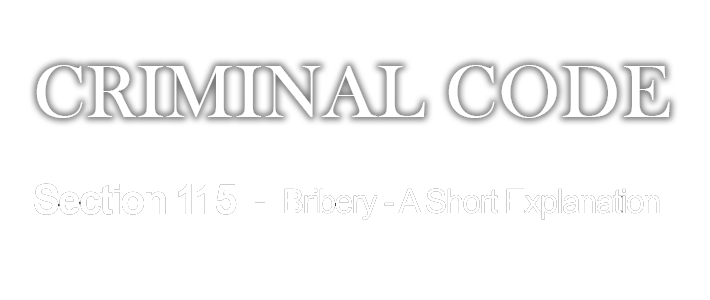PERMANENT COMMISSION
AGAINST CORRUPTION
The Permanent Commission Against Corruption (PCAC) is established by virtue of Chapter 326 of the Laws of Malta and is composed of a chairman and two members.
Section 115 of the Criminal Code

The crime involves the request, receipt, or acceptance of a reward, promise, or offer of reward or advantage, which the officer is not entitled to, in connection with their office or employment. The severity of the punishment depends on the nature and outcome of the corrupt act. It clarifies that the act can be within the officer’s own competence or within their delegated functions, as long as it allows the officer to influence decisions or make arrangements.
About PCAC
Functions and Responsibility
Duties, Responsabilities and objectives undertaken by the commission, highlighting its purpose and areas of focus.
Composition of the Commission
Number of members, affiliations, expertise, or any other relevant factors that contribute to the commission's composition.
Independence of the Commission
Governance structures, or safeguards that ensure the commission's independence from external influences or biases.
Investigations
Conducting investigations, also including gathering information, analyzing evidence, and reaching conclusions.
Freedom of Information
Promoting accountability, empowering citizens, and facilitating informed decision-making.
Data Protection Policy
Covers topics such as the collection, storage, processing, and sharing of personal or sensitive information.
To consider alleged or suspected corrupt practices and to investigate such allegations or suspicions when it determines that there are sufficient grounds for an in-depth investigation
To investigate the conduct of any public officer, including Ministers or Parliamentary Secretaries, which in the opinion of the Commission may be corrupt or may be connected with or may be conducive to corrupt practices
To investigate the conduct of any person who is or had been entrusted with functions relating to the administration of a partnership or other body in which the Government, local government, statutory body etc has a controlling interest or effective control, where the Commission is of the opinion that such conduct could be corrupt or connected with or conducive to corrupt practices
To investigate the practices and procedures of government departments, local government authorities, statutory bodies or other bodies in which the Government has a controlling interest or effective control in order to facilitate the discovery of any corrupt practices and to recommend the revision of work methods or procedures that could be conducive to corrupt practices
To instruct, advise and assist Ministers or other persons who are entrusted with the administration of government departments and other bodies where the Government has a controlling interest or effective control on ways in which corrupt practices could be eliminated

